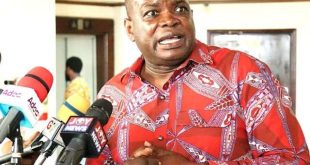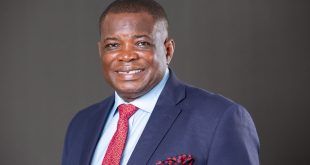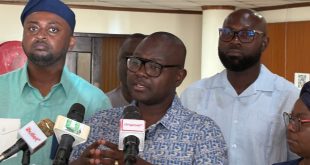Following a pattern witnessed in previous election years in the most populous nation in Africa, Nigeria’s presidential election tribunal rejected an opposition appeal to Bola Tinubu’s victory in the contested race in February on Wednesday.
In Nigeria, which had a history of electoral fraud and returned to democracy in 1999 after nearly three decades of military government, no judicial challenge to the results of a presidential election has ever been successful.
The People’s Democratic Party’s Atiku Abubakar and the Labour Party’s Peter Obi, who placed second and third, respectively, had requested the court to declare the election void due to alleged irregularities.
Obi’s case was denied point-by-point by Judge Haruna Tsammani, who read out a long decision on behalf of the tribunal’s five members. Reading Atiku’s petition, which was also anticipated to be denied, he did so.
According to Tsammani, Obi’s appeal was “unmeritorious” and lacked “any credible evidence sufficient” to support his charges of irregularities.
The elections were plagued by issues, including operational breakdowns and a lack of transparency that lowered public confidence in the process, according to European observers’ reports from June.
However, there was little evidence of widespread popular opposition following the elections, and Tinubu has been recognized by the international community as Nigeria’s lawful president. Tinubu was in India getting ready to attend the G20 conference there while the panel was rendering its decision.
In an effort to overturn the tribunal’s decision, Atiku and Obi may file an appeal with the nation’s Supreme Court. Any appeal must be resolved within 60 days of the tribunal’s decision date.
Despite being in Tinubu’s favor, the tribunal’s decision was not anticipated to give the president any particular reason for jubilation or momentum following an election with a record-low 29% turnout.
Tinubu received the fewest votes of any president since the restoration of democracy, 8.79 million, in a country with more than 200 million citizens, 87 million of whom were registered to vote. This limited public support for him.
As a result of his predecessor Muhammadu Buhari’s poor economic performance, Tinubu inherited enormous unemployment, record debt, the highest inflation rate in twenty years, widespread insecurity, major oil theft, and record debt.
He has enacted a number of reforms, including as eliminating currency controls and a popular but expensive gasoline subsidy, but labor unions have resisted him. This week, they organized a two-day nationwide strike and are preparing for another.
The tribunal has the authority to throw out the results and order a new election, but that decision may be challenged in a higher court.
Future elections in the democracy with the largest population in Africa may be significantly impacted by its choice.
However, since Nigeria’s return to civilian governance about 25 years ago, no presidential election result has been overturned.
Source: Ghanatodayonline.com
 Ghanatodayonline.com News, Politics, Health, Education & More
Ghanatodayonline.com News, Politics, Health, Education & More




